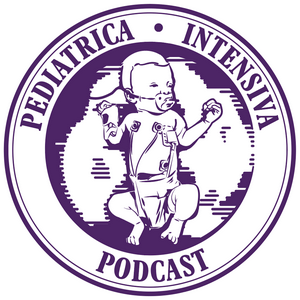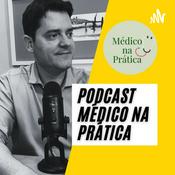Pediatrica intensiva: Art & Science of Pediatric Critical Care

24 episódios

Difficult Airways w Akira Nishisaki & Doug Atkinson
05/12/2024 | 1h 9min
Airway management remains the single highest risk time for our patients in pediatric ICU. Different studies of pediatric airway management report first pass success as low as 50%. Rates of severe desaturation as high as 20%, and significant rates of cardiac arrest ranging from two to 15% in the 30 minute peri intubation window alone. A difficult airway might be anticipated or unanticipated and is not just difficult endotracheal intubation, but also difficulties with mask ventilation. supraglottic airway devices, difficult rescue techniques including front of neck access and physiologically difficult airways, which we covered in previous episodes. The good news is that the attention our community has been paying to these issues has reduced the rates of endo tracheal intubation (ETI) associated adverse events significantly, but there's still a long way to go. We are joined by Akira Nishisaki from NEAR 4 Kids & CHOP which has been one of the main drivers of improvements in this space for almost 20 years and who has an incredible knowledge of the literature and Doug Atkinson a pediatric anesthesiologist and cardiac intensivist from Boston Children's Hospital. As always, we focus on how our expert panel do things in practice at their institutions whilst being aware of the evidence.

Airways That Scare Me - Respiratory Instability w Robi Khemani
11/7/2024 | 55min
This season is about airway management or airways that scare me and this episode, we discuss the respiratory unstable patient or the patient who's a "physiologically difficult airway" because they have bad lungs. We were incredibly lucky to have the amazing Robi Khemani from CHLA, a world expert on respiratory disorders in #pedsICU, join us and be able to share his thoughts. It's not just about putting the tube in, it's about that whole high risk period of peri intubation. And with better drugs and devices we've opened a big space between low flow oxygen and invasive ventilation which makes decision making trickier. Here we focus on that difficult decision making and the patients that really scare us. If you haven't heard it yet, our previous episode on team, environment, and equipment is very relevant here. Featuring special guest Robinder Khemani from Children's Hospital LA and regular hosts @drpetaalexander @BostonChildrens @drgregkelly @SCHNkids and @Karen_Choong @MCH_childrens No time to listen or want to participate in the discusion? You can find a full Tweetorial of this episode on Twitter @pedsintensiva and our website here https://pedsintensiva.com

Complex Airway Surgery - Airways That Scare Me
05/2/2024 | 58min
Children with complex airway surgery are airways that truly scare us. Though a small number of patients in pedsICU, they can stay a long time and are at risk of death and morbidity from their underlying conditions, co-existing conditions, their treatment and ICU acquired problems. Managing these patients requires a high level of understanding, communication and teamwork between ENT/ORL, ICU, anesthesia, cardiothoracic surgery and numerous other teams. We're going to cover the working up and investigation of patients transfers. The kind of conditions that are treated ranging from severe stenoses to severe malacias. What the surgeons actually do what they want us to know and how it can best work together between ICU and surgical team. We're also going to cover how we maintain these patients in the ICU, how we progress them, forwards, how we investigate problems and how we get the next debated and keep them safe. Featuring special guests ORL surgeon and innovator David Zopf and Ryan Barbaro from University of Michigan and regular hosts @drpetaalexander @BostonChildrens @drgregkelly @SCHNkids and Mike Clifford @RCH No time to listen or want to participate in the discusion? You can find a full Tweetorial of this episode on Twitter @pedsintensiva and our website here https://pedsintensiva.com

Airways That Scare Me - Shock Part 2
11/10/2023 | 48min
Airway Management remains the single highest risk time for our patients in pedsICU & pedsCICU. We've known about problems for long time, but finally gaining attention, new ways of thinking & new ways to use drugs & devices- there's a lot more gray then there used to be. We'll discuss resuscitation and airway management in child with cardiac disease or hemodynamic instability, introduce the concept of the resus spiral staircase and talk about how you can optimize your team, respiratory support and hemodynamics. We cover delayed sequence intubation and that not every patient needs a tube and not every patient needs a tube right now. With better drugs and devices like dexmedetomidine and non-invasive, we've actually opened up a big zone between no support and invasive ventilation. We'll discuss ECMO standby when, how, who, and then finally de-resuscitation and extubation or separation from support. This was a really big episode, so we've split it into two. The first half covered the resus spiral, team management, equipment & environment. In this second episode, we will go into respiratory and hemodynamic support, rescue strategies, including ECMO and finally extubation. Featuring regular hosts @drpetaalexander @BostonChildrens @karen_choong @MCH-childrens @drgregkelly @SCHNkids No time to listen or want to participate in the discusion? You can find a full Tweetorial of this episode on Twitter @pedsintensiva and our website here https://pedsintensiva.com

Challenging Scenarios in Pediatric ECMO with Peds Intensiva, PCICS and PediECMO
30/6/2023 | 48min
What are the pediatric #ECMO scenarios that even experts struggle with? "Challenging Pediatric ECMO Scenarios" Special Collaboration w @PCICS @ECMOPedi and @PedsIntensiva 3 cases covering what our expert hosts and panelists all decided were three of the HARDEST scenarios to deal with: 1. VA ECMO for respiratory support; 2. L heart decompression on VA ECMO &; 3. "Inadequate" VV ECMO support Feat. international experts @drpetaalexander @deanna_md @ETEmrath @DrGregKelly @JFurlongDillard @ozmen001 and Dr Ariane Willems As usual, the audio content will be released as a tweet thread that you can find and comment on - here is the link Pedsintensiva.com
Mais podcasts de Saúde e fitness
Podcasts em tendência em Saúde e fitness
Sobre Pediatrica intensiva: Art & Science of Pediatric Critical Care
Ouça Pediatrica intensiva: Art & Science of Pediatric Critical Care, Psicologia na Prática e muitos outros podcasts de todo o mundo com o aplicativo o radio.net

Obtenha o aplicativo gratuito radio.net
- Guardar rádios e podcasts favoritos
- Transmissão via Wi-Fi ou Bluetooth
- Carplay & Android Audo compatìvel
- E ainda mais funções
Obtenha o aplicativo gratuito radio.net
- Guardar rádios e podcasts favoritos
- Transmissão via Wi-Fi ou Bluetooth
- Carplay & Android Audo compatìvel
- E ainda mais funções


Pediatrica intensiva: Art & Science of Pediatric Critical Care
baixe o aplicativo,
ouça.






































